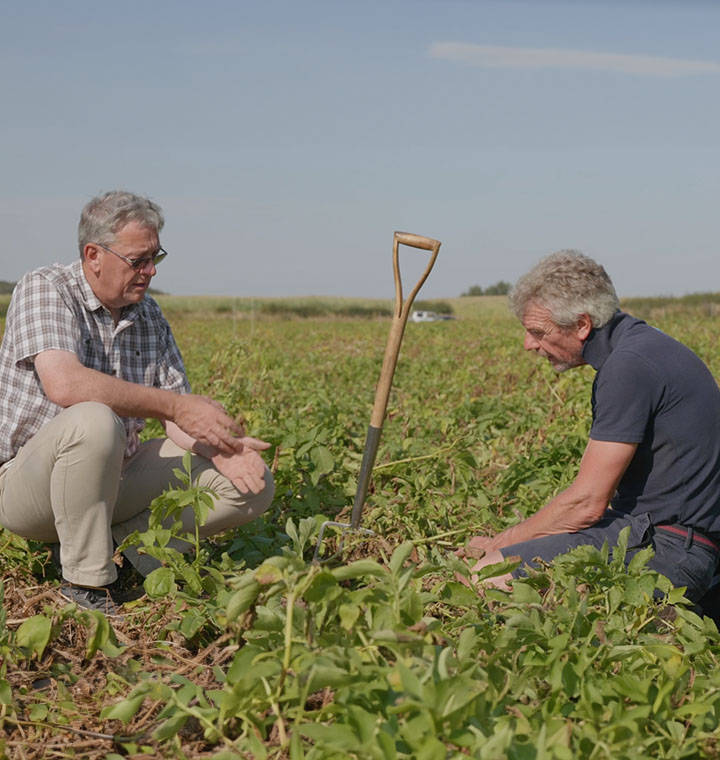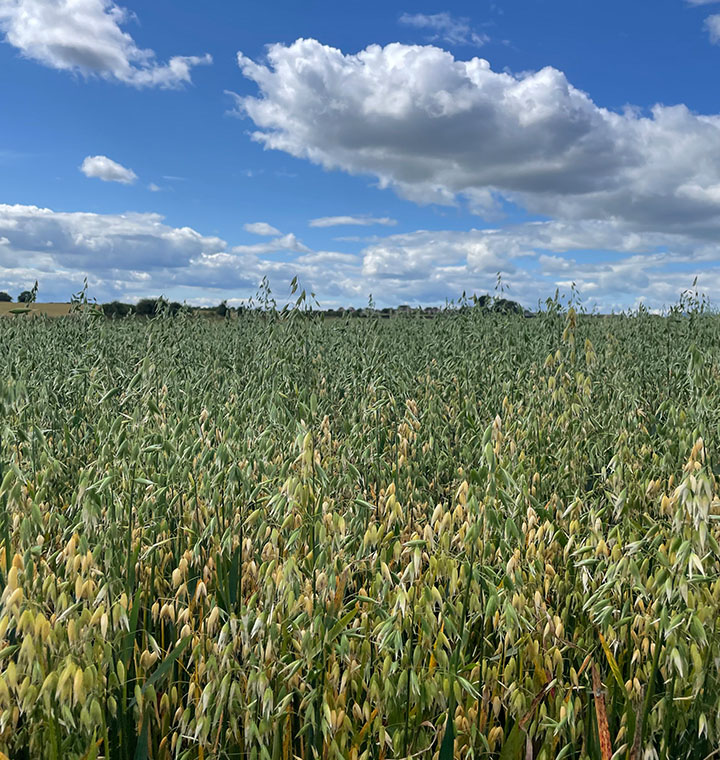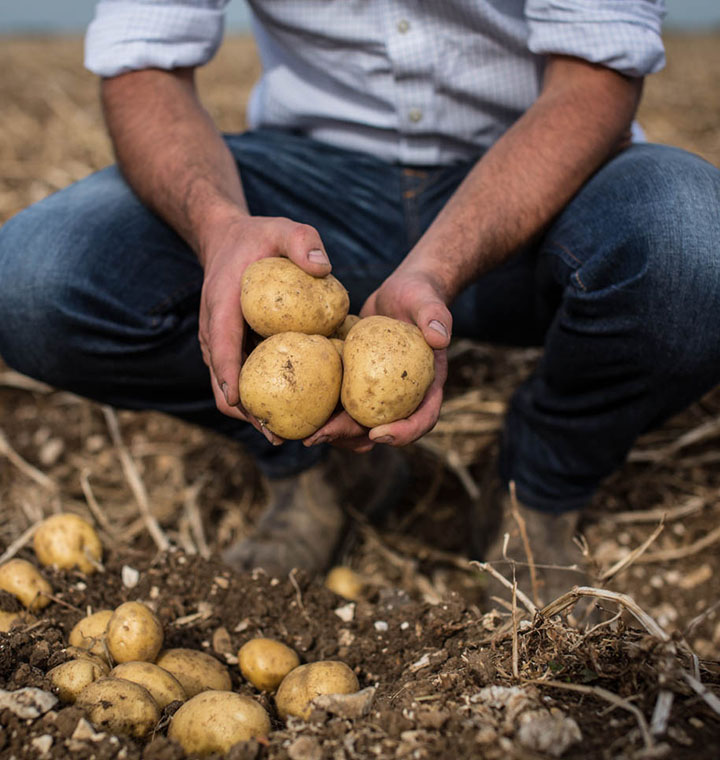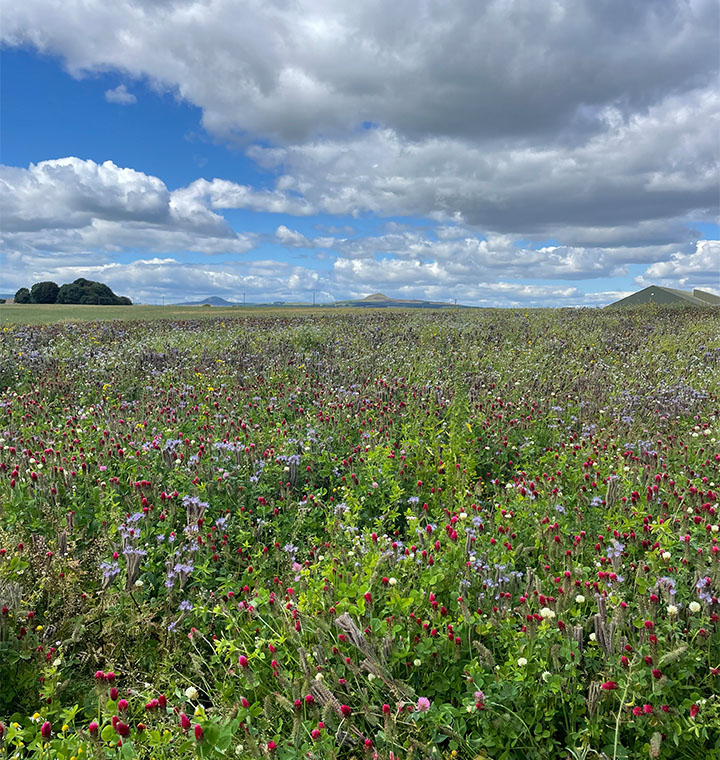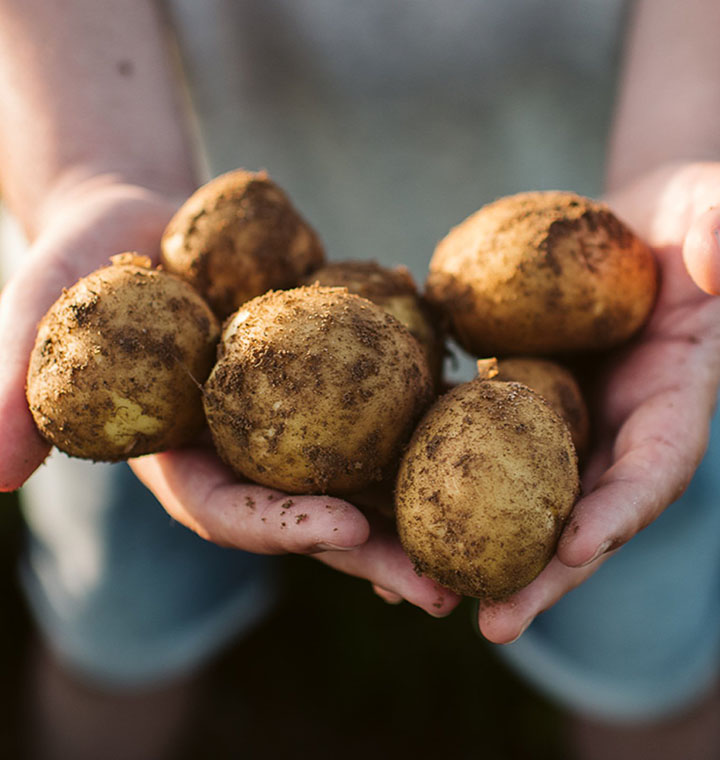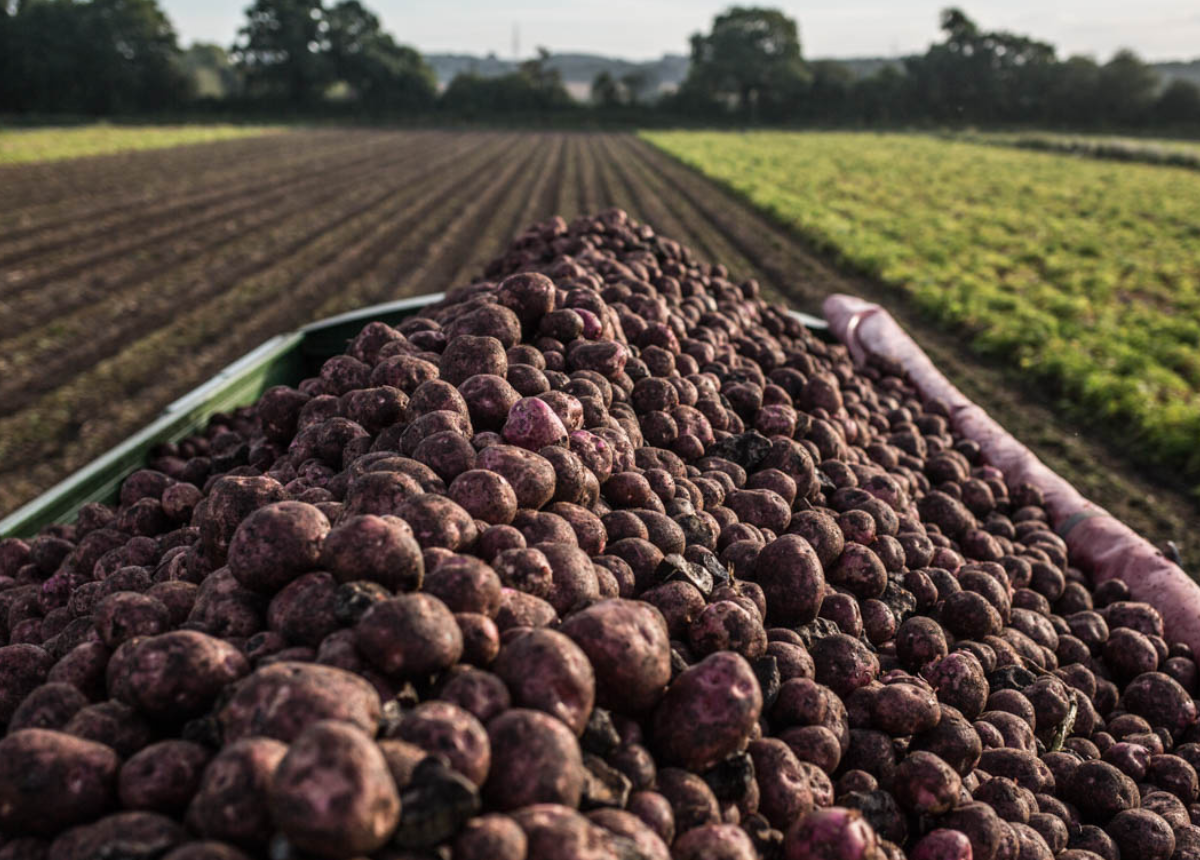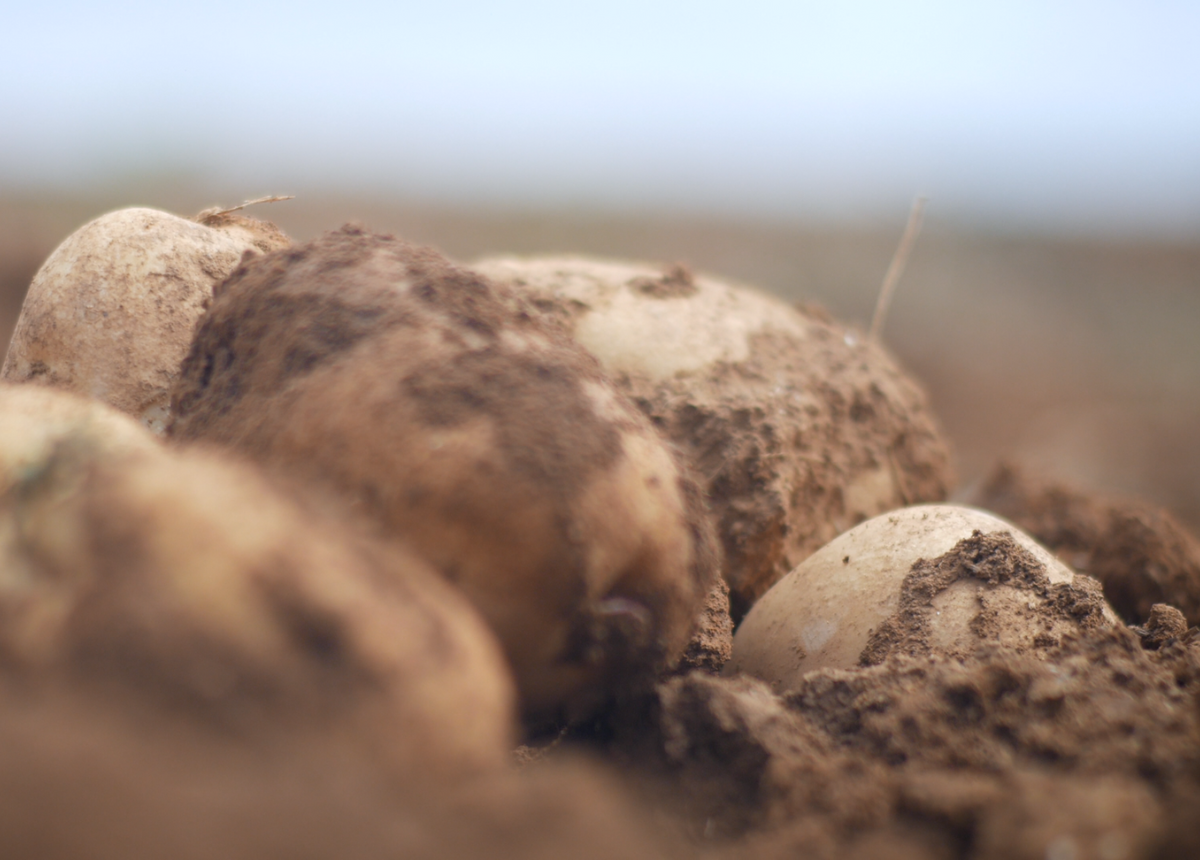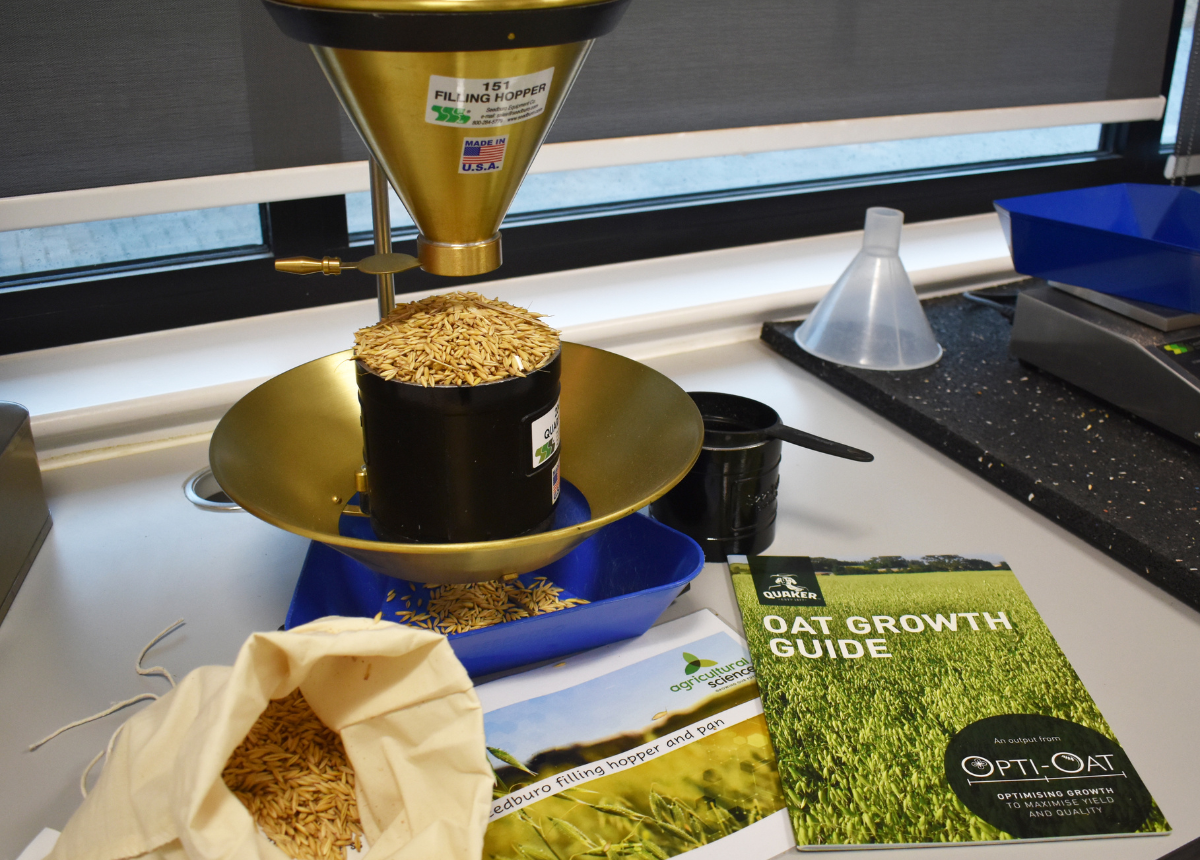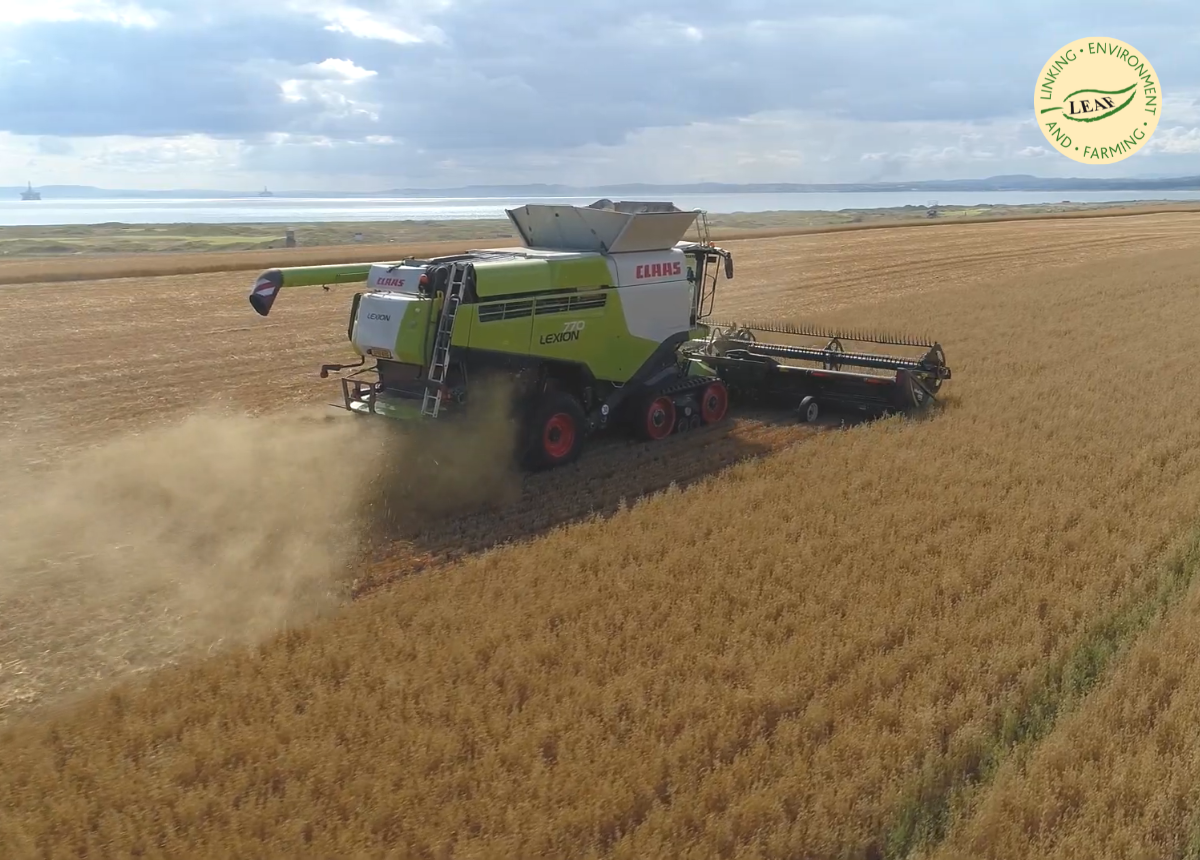Our global ambition
Across our Positive Agriculture goals, we aim to scale and accelerate what has worked, continue to collaborate with stakeholders, adopt new technologies and establish partnerships that can have a substantive positive impact.
Learn more
Sustainable farming
We work with growers to reduce their impact on the environment and adapt to climate change, providing them with in-field agronomy support, as well as tools and practices that track water use, reduce carbon, and improve yield.
Learn more +
Sustainable farming
We continually work with our growers to roll out new tools and practices that help reduce their impact on the environment, adapt to climate change while protecting and improving yields. Our work in this space includes using smart-tech to offer precise monitoring and implementing biodiversity projects to boost soil health.
Developing innovative tools
- Cool Farm Tool: We have partnered with the Cool Farm Alliance to use the award-winning Cool Farm Tool, which ultimately helps cut growers’ greenhouse gas emissions.
- CropTrak: Alongside partners, we developed CropTrak, an innovative system that measures agronomy practices, including monitoring the growing crop. We monitor over 250,000 field data points a year from 900 fields, allowing us to work with growers to improve quality and the environment by aiding reductions in water usage and carbon emissions.
Rolling out regenerative farming practices
- Cover crops: To help keep the soil healthy for the crops that we grow our products in, we are aiming to increase the number of cover crops grown in the fields before each season’s potato crop is planted, capturing important nutrients in the process.
- Biodiversity flower mixes: We also encourage our growers to plant wildlife-friendly biodiversity mixes – loved by bees and other flying insects alike – around fields and on land not used to grow our potatoes. Learn more about this project here.
Growing oats sustainably
With over 80,000 metric tonnes of oats going through our Quaker mill in Scotland every year, we support growers by giving them useful data and insights to help produce the best quality Quaker Oats, while protecting the planet.
Learn more +
Growing oats sustainably
We use data driven insights, industry partnerships and our years of expertise to develop clear guidance, innovative tools and regenerative farming standards for our oat growers.
Helping farmers grow the perfect oat
- Oat Growth Guide: We developed science-based crop intelligence to support sustainable Quaker oat production, culminating in the launch of the UK’s first Oat Growth Guide. Designed to help farmers grow the perfect oat, it aims to deliver a 5-10% increase in yield and create a more sustainable crop.
- Opti-Oat: The Opti-Oat Crop Intelligence platform provides Quaker growers with science-based insights to support sustainable oat production. The platform provides yield and development predictions based on crop physiology, weather data, climate projections, and satellite-enabled remote sensing of crop status, with the aim of improving yields by up to 10% within our existing sourcing footprint.
- NIAB Oat Lab: We also have a dedicated oat research lab located at NIAB (National Institute of Agricultural Botany). Home to state-of-the-art grain quality testing facilities, expert crop researchers test and analyse thousands of oat samples from agricultural research trials. Data collected will be used to support our UK Quaker Oats growers to optimise their management practices to improve yields and efficiency, ensuring a more sustainable, high-quality supply of oats. Read more.
- LEAF: We are funding Linking Environment And Farming (LEAF) membership for all UK-based Quaker Oats growers, with LEAF Marque certification now on a range of our Quaker Oats products. Through the principles of Integrated Farm Management, crops grown at LEAF Marque-accredited farms support an improved environment for biodiversity, soil health, water and air quality, alongside the production of quality food such as oats.
Low carbon farming
As threats from climate change mount, we’re working together with our farmers to reduce our collective carbon footprint and create a more sustainable food system – including some significant investments in innovative carbon-cutting agriculture solutions.
Learn more +
Low carbon farming
We know that climate change isn't something we alone can solve, so we've partnered with peers from across the food & drink industry and a clean-tech firm to help reduce our impact on the planet.
Reducing carbon emissions
- Waste-based fertilizer: We’ve joined forces with British clean-tech firm, CCm Technologies, to reduce our carbon footprint by using
waste-based fertilizer. By turning leftover waste into a reusable resource, we’re driving more circularity in the growing process for both potatoes and oats, helping farmers reduce their impact on the environment. In fact, results from trial fields using the fertilizers over the past growing season has shown a 70% reduction in fertilizer production and field related greenhouse gas emissions. Read more.
- Crop nutrition programme: Across PepsiCo Europe, we've partnered with Yara to help farmers adopt low-carbon agricultural practices, covering around 1,000 farms and 128,000 hectares across the EU and the UK, doubling use of climate friendly fertilisers in 2025. The partnership will provide farmers with best-in-class crop nutrition products and advice, as well as precision farming digital tools. This will allow them to increase nutrient use efficiency, boost yields and reduce the carbon footprint of their crops. Read more.
Improving soil health
- Low tillage farming: We’re leading Potato-LITE, a cross-industry consortium project working to develop novel machinery and cultivation practices for UK-based potato growers to optimise tillage intensity, improve soil health and lower greenhouse gas emissions. The research insights from this multi-year project will be made publicly available to all UK potato growers and producers. Read more.
Scaling regenerative agriculture practices
Two projects in the UK are benefitting from the global Positive Agriculture Outcomes Fund, an initiative designed to invest in accelerating the development of innovative technologies and approaches that can help scale the adoption of regenerative agriculture practices.
Learn more +
Scaling Regenerative Agriculture Practices
We're helping farmers to scale regenerative agriculture practices through our global Positive Agriculture Outcomes Fund. This initiative offers local farming communities co-investment to accelerate diverse and results-driven Positive Agriculture projects, as well as funding for ag-tech start-ups that offer proven products or technology with the potential to scale.
Improving biodiversity and enhancing wildlife habitats
- Biodiversity in Scotland: The first is helping Quaker Oat growers in Scotland maintain a productive farm, whilst improving biodiversity and enhancing wildlife habitats. The project brings together farming and wildlife experts to create a science-based approach and recommendations which work both for the grower and for wildlife. Learn more about this project here.
Planting to improve soil health
- Boosting soil health: The second is our ‘Living Roots’ project, aimed at improving soil health on some of the fields where we grow potatoes used to make Walkers crisps. We are providing growers with seeds to grow different species of radishes; these naturally release chemicals that, at low doses, help reduce the amount of soil-borne pests. This helps keep the soil healthier in preparation for potato planting.
